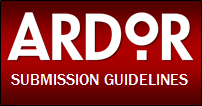
For those who are working on a manuscript to send out to literary agencies, and those sitting with a completed work, wondering “What now?”—here are some tips about seeking representation. But first, something to note as you embark on the journey: Agents love great work, they love working with authors to see a manuscript through to publication, and they are rooting for you to succeed. They are not mean on principle. They are not rejection-happy. They’re generally nice people, and when you’re lucky enough to find the right agent, rest assured that they will do everything they can to promote your work and encourage you in your writing goals. With that, here are some do’s and don’ts:
Do:
1. Be specific. Send your work to a person, not a Whom. Within an agency, there are multiple agents who represent different stuff. Be intentional! Decide which agent you want to contact, and then address your query to them.
2. Research the agency and the agent you are querying. If you have written a script for a marvelous werewolf erotica film, but the agent you’ve contacted only represents picture books, you will be rejected. I promise, you will. Usually an agent’s preferences will be listed on their agency website or personal blog. Do your homework, and you’ll find that agent who lives for werewolf erotica.
3. Edit. Work and re-work your query letter, and read through your manuscript for the 101st time. Most agencies will request a small portion of your book along with your query, so make it as coherent and grammar-tastic as possible.
Do:
1. Be specific. Send your work to a person, not a Whom. Within an agency, there are multiple agents who represent different stuff. Be intentional! Decide which agent you want to contact, and then address your query to them.
2. Research the agency and the agent you are querying. If you have written a script for a marvelous werewolf erotica film, but the agent you’ve contacted only represents picture books, you will be rejected. I promise, you will. Usually an agent’s preferences will be listed on their agency website or personal blog. Do your homework, and you’ll find that agent who lives for werewolf erotica.
3. Edit. Work and re-work your query letter, and read through your manuscript for the 101st time. Most agencies will request a small portion of your book along with your query, so make it as coherent and grammar-tastic as possible.
Don’t:
1. Misspell, especially in your query letter. If your letter tries to convince the agent that she should represent your “relly awesum fantisy” novel, odds are, she’ll pass. Typos happen to the best of us, but it’s important that she’s not worrying about copyediting your 90,000 word memoir before she’s even finished the synopsis.
2. Ask them to call you. It’s arrogant, it’s unprofessional, and it’s never going to happen. Agents are extremely busy, and in the near and hopeful future, you want them busy with your manuscript as well. So be nice, be patient, and be happy that someone is taking the time to consider your precious work of art. If they love it, you will know.
3. Be That Guy. You know, the one who’s like, “My thriller is the best thing you will read in your lifetime, and if you want to make millions, you will represent it.” If your manuscript does happen to be the best thing the agent will ever read, you won’t need to tell them so. Also, keep in mind that the process toward publication is rife with edits. Edits upon edits upon edits. An author who thinks his book is God’s gift to humanity probably won’t be an easy one to work with. Do yourself a favor, and leave an agent with the best possible impression.
You might be asking, “So, I did the Do’s, avoided the Don’ts, and I’ve sent my queries out. Now what?”
Now, you wait. And this, for all of us writers, is maybe the hardest part of all. Some agencies will give a time limit on their website, explaining their process, and giving specifics, and some may just leave you to bite your nails to stubs.
So, if/when you get a positive response: Celebrate!
If you get a rejection: Keep querying. Because when it comes to rejections, sometimes business really is Just Business. A rejection doesn’t mean you’re a bad writer, it means the manuscript wasn’t right for that particular agent.
The question agents ask most often is not “Is this good?” but rather “Is this right for us?” If it’s not, they’ll usually explain why. If there are changes you can make to improve your work—make them—and then take it elsewhere. You want to find that agent who will be as passionate about your writing as you are, and that might take some time.
Lastly, past the stress of query letters, past the sting of rejection, keep writing. It’s because of you that we have and love our jobs, so thank you and good luck!
Blog photo courtesy of ginnerobot
1. Misspell, especially in your query letter. If your letter tries to convince the agent that she should represent your “relly awesum fantisy” novel, odds are, she’ll pass. Typos happen to the best of us, but it’s important that she’s not worrying about copyediting your 90,000 word memoir before she’s even finished the synopsis.
2. Ask them to call you. It’s arrogant, it’s unprofessional, and it’s never going to happen. Agents are extremely busy, and in the near and hopeful future, you want them busy with your manuscript as well. So be nice, be patient, and be happy that someone is taking the time to consider your precious work of art. If they love it, you will know.
3. Be That Guy. You know, the one who’s like, “My thriller is the best thing you will read in your lifetime, and if you want to make millions, you will represent it.” If your manuscript does happen to be the best thing the agent will ever read, you won’t need to tell them so. Also, keep in mind that the process toward publication is rife with edits. Edits upon edits upon edits. An author who thinks his book is God’s gift to humanity probably won’t be an easy one to work with. Do yourself a favor, and leave an agent with the best possible impression.
You might be asking, “So, I did the Do’s, avoided the Don’ts, and I’ve sent my queries out. Now what?”
Now, you wait. And this, for all of us writers, is maybe the hardest part of all. Some agencies will give a time limit on their website, explaining their process, and giving specifics, and some may just leave you to bite your nails to stubs.
So, if/when you get a positive response: Celebrate!
If you get a rejection: Keep querying. Because when it comes to rejections, sometimes business really is Just Business. A rejection doesn’t mean you’re a bad writer, it means the manuscript wasn’t right for that particular agent.
The question agents ask most often is not “Is this good?” but rather “Is this right for us?” If it’s not, they’ll usually explain why. If there are changes you can make to improve your work—make them—and then take it elsewhere. You want to find that agent who will be as passionate about your writing as you are, and that might take some time.
Lastly, past the stress of query letters, past the sting of rejection, keep writing. It’s because of you that we have and love our jobs, so thank you and good luck!
Blog photo courtesy of ginnerobot

Nicole Hannel is a writer, a query-reader, and a book-nerd. She currently works at a literary agency in Atlanta, Georgia where she does her best to promote manuscripts that make her cry or laugh out loud. She loves encouraging writers to share their work with the world, and she really loves tea.
You can follow Nicole on Twitter: @nicolehannel
You can follow Nicole on Twitter: @nicolehannel


 RSS Feed
RSS Feed

